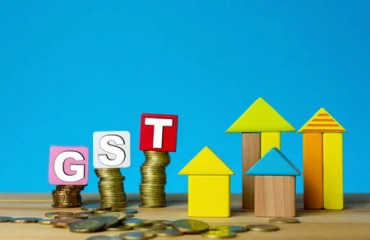
New Delhi: The goods and services tax (GST) council will take decisions on waiving disputed tax liabilities of certain industries based on a new provision that the federal indirect tax body inserted in tax laws at its meeting last Saturday, according to two persons with knowledge of the matter.
New Delhi: The goods and services tax (GST) council will take decisions on waiving disputed tax liabilities of certain industries based on a new provision that the federal indirect tax body inserted in tax laws at its meeting last Saturday, according to two persons with knowledge of the matter.
The new provision—Section 11 A of Central GST (CGST) Act—gives the government the power to not recover certain dues and close disputes on an "as is" basis at its discretion. Individual tax officials will not be able to take decisions on such disputes, the people added on condition of anonymity.
While the provision does not mention specific industries, online gaming companies and alcoholic spirit makers are pinning hopes on it to get waiver from the GST council on their alleged tax dues.
"This provision (section 11A) is not specific to any industry. It can be invoked when required. The GST council will decide," the first person cited above said.
Emailed queries sent on Wednesday to the spokesperson for the finance ministry and to the GST council remained unanswered at the time of publishing.
Industry welcomes decision
Experts welcomed the council's decision to find a solution to tax disputes. "While it is not possible for the GST legislation to recognise divergent trade practices across businesses, it is equally essential to have a mechanism whereby the GST law recognises such practices on a broad industry basis," said M.S. Mani, partner at Deloitte India.
"Businesses in the impacted sectors where GST laws and trade practices are not aligned will heave a sigh of relief once the proposed section 11A is enacted," said Mani.
I.P. Suresh Menon, secretary general of The International Spirits & Wines Association of India (ISWAI) said, "Our understanding is that once the GST laws are amended to incorporate section 11A as recommended by the GST council, it can be applied across the board to all industries."
A matter of synchronization
Experts said that online gaming companies, alcoholic spirit makers, airlines, shipping, and non-banking finance industries have faced tax disputes owing to trade practices not being in sync with GST laws.
"In the past, for industry segments like fishmeal and machinery parts, the Council had specifically decided that tax rate can be applied as per the common business practice as far as all retrospective cases were concerned, and for the future, the rates as decided by the council would apply," said Menon.
Also Read: Seven years on, GST still sparks Centre-state friction
In the case of the alcoholic spirits industry, the main raw material, extra neutral alcohol or ENA, has been taxed under state excise and value added tax (VAT) as in the case of liquor for human consumption, even after introduction of GST.
However, a decision of the Allahabad High Court in 2021 saying that Uttar Pradesh state lost legislative competence to levy state VAT on ENA in view of GST introduction, led to confusion on the taxation on the raw material for liquor.
"The practice has been that companies have continued to pay VAT in the post-GST era. Even in Uttar Pradesh, 5% VAT was applicable till a court ruling came up with a different view. The national business practice of keeping ENA under VAT and excise should continue and wherever applicable, the benefit of section 11A as recommended by the GST council should be granted," said Menon.
Online gaming under the lens
Online gaming companies have in the past two years been served about 71 notices for alleged tax dues of about ₹1.12 trillion for the period up to 1 October 2023, when the GST council clarified that 28% GST would apply on the full value of deposits made by players.
The industry has been maintaining that 18% GST on the gross gaming revenue was applicable. The dispute is now before the Supreme Court.
Experts said that foreign airlines faced tax notices in India on the reimbursement of expenses of their local offices by the parent company as it was interpreted as a consideration for taxable supply of services to the parent.
